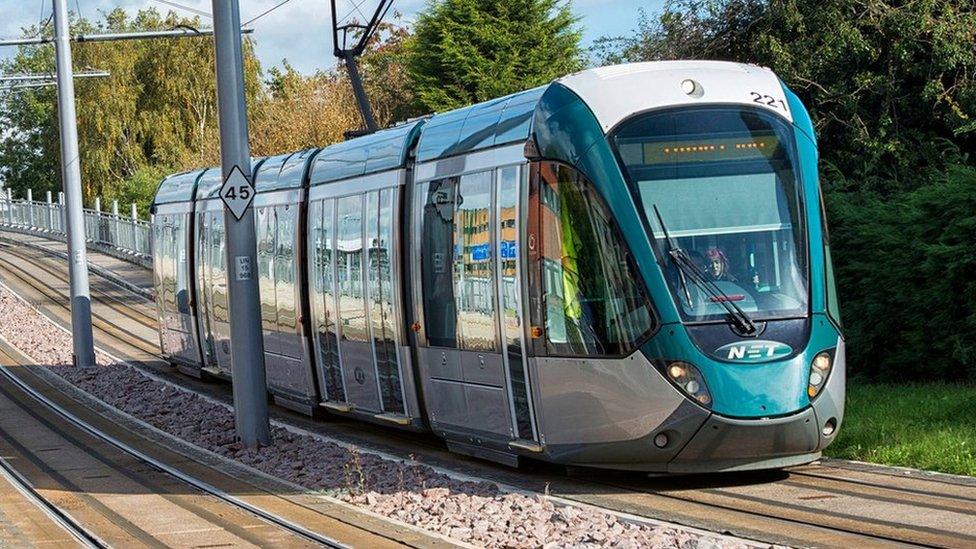Why is the East Midlands electing a mayor?
- Published
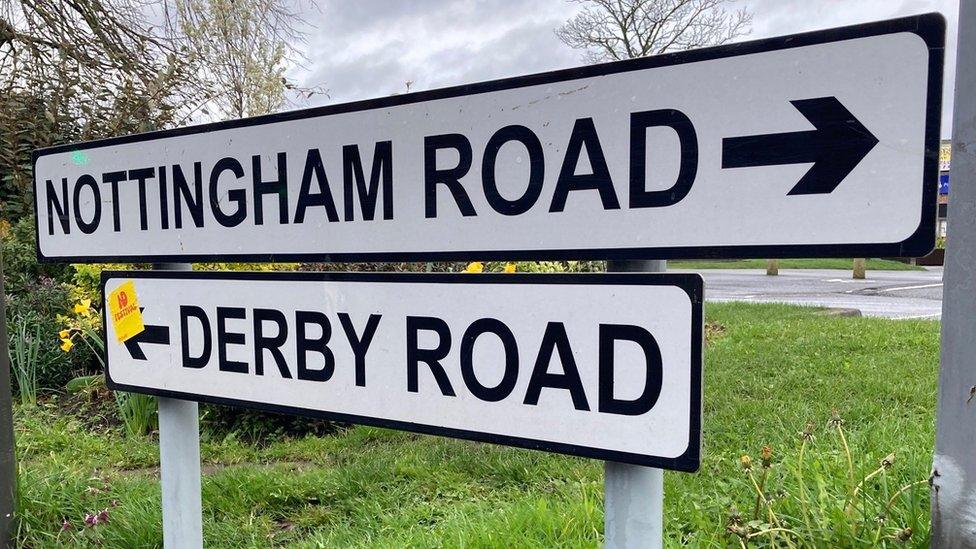
The new mayor will be a figurehead for Derbyshire and Nottinghamshire
Derbyshire and Nottinghamshire voters will go to the polls in a historic election in May to choose an East Midlands mayor.
But why is the region getting one and what will it mean? BBC News and the Local Democracy Reporting Service can tell you more.
How has this come about?
The new mayoral role is a requirement of a £1.14bn devolution deal for the region that will move some powers from Westminster to an elected leader for the two counties, which have a combined population of 2.2m people.
The deal was signed by Derby City Council, Derbyshire County Council, Nottingham City Council and Nottinghamshire County Council in November 2022, external - but the arrangement does not include Leicester or Leicestershire.
As part of the deal, a joint area council called the East Midlands Combined County Authority (EMCCA) has been created to work alongside the existing city and county councils.
The idea is the new mayor will be a figurehead for the region who can champion the area and lobby government for support.
The government has said it believes a regional mayor means clearer accountability over local powers, functions and funding.
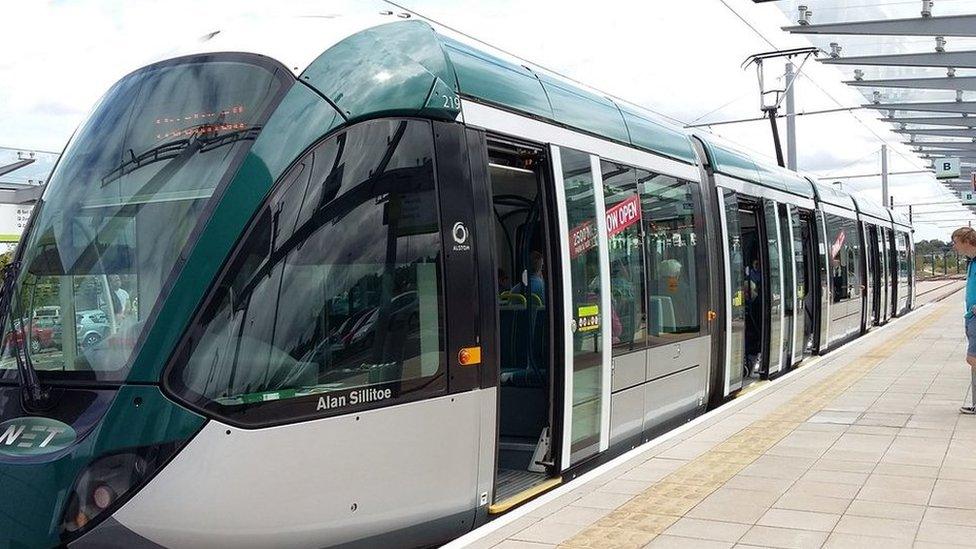
Extra funding as part of the devolution deal could fund an upgrade for Nottingham's tram network
Mark Rogers, interim chief executive of the EMCCA, said: "This is a big deal in every sense. It's on a scale that the East Midlands hasn't seen before, and gives it the powers and resources it needs to turn round under-investment, tackle challenges and open up massive new opportunities for people and places.
"This is all about bringing power back to the East Midlands, and the most significant part of that process is the vote - the people will decide who'll lead this transformation."
What powers will the new mayor have?
The mayor will have authority to make more major decisions locally, similar to West Midlands mayor Andy Street or Greater Manchester's Andy Burnham.
The combined authority will receive a fixed sum of £38m annually for 30 years and have greater controls over how money is spent on things like transport and education.
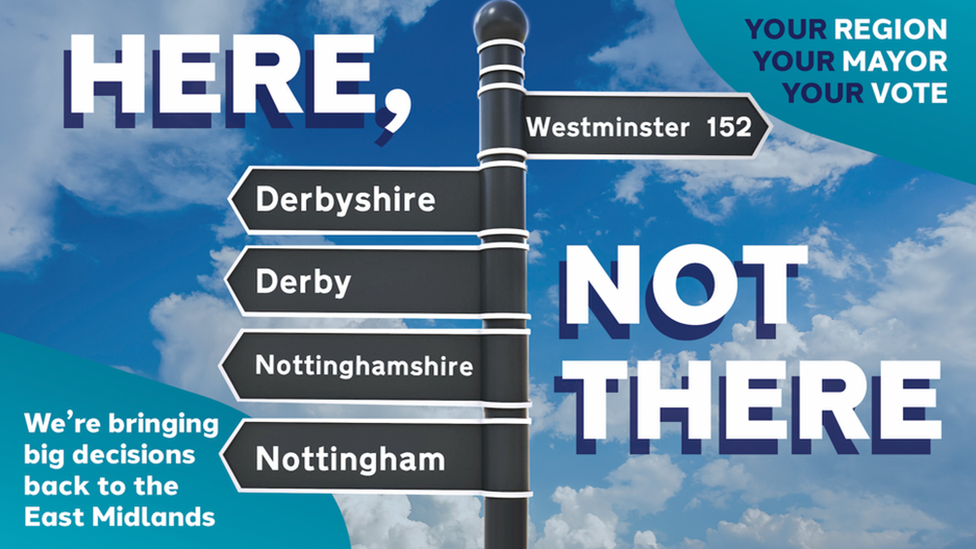
Posters have been produced urging people to vote
The devolution deal is aimed at tackling under-investment in the East Midlands and reclaiming powers from Westminster.
The mayor will also take a leading role in transport, with the government promising an additional £1.5bn of funding.
What other areas have gone down this route?
The government said devolution deals now covered 60% of the English population, external - up from 41% two years ago.
Deals already in place include Tees Valley, West Yorkshire, South Yorkshire, Greater Manchester, Liverpool City Region, West Midlands and Greater London.
Three new authorities will see mayoral elections for the first time in May - the East Midlands, North East and York and North Yorkshire.
More are due to join in 2025 - including Hull and East Yorkshire, Greater Lincolnshire, Norfolk and Suffolk.
Who can we vote for in the East Midlands?
Candidates had until 5 April to throw their hat in the ring. Those who have stepped forward are, external (in alphabetical order):
Frank Adlington-Stringer (Green Party)
Ben Bradley (Conservatives)
Alan Graves (Reform UK)
Matt Relf (Independent)
Helen Tamblyn-Saville (Liberal Democrat)
Claire Ward (Labour)
Why are Leicester and Leicestershire not involved?
Ahead of the devolution deal being signed, Leicester City Council decided it was unwilling to join the partnership, with the city's own mayor Sir Peter Soulsby describing the idea of having two elected mayors in the area as "daft", external.
Both Leicestershire and Rutland were told that alone, they could not be considered as a "functional economic area" and therefore could not join Derby, Derbyshire, Nottingham and Nottinghamshire in a wider deal.
Concerns were also raised about the potential harm to Leicestershire's strategic partnerships with the city from joining the new combined authority.
So, Leicester, Leicestershire and Rutland agreed to a smaller-scale "level two" devolution deal.
This has left many, not least in Leicestershire, disappointed.
When is election day?
The election is on 2 May, at the same time as local council and new police and crime commissioner elections.
Voters will be asked to show photographic ID at polling stations, such as a passport, driving licence, blue badge or an older person's bus pass.
If you do not have any of these, you can apply for a Voter Authority Certificate by 24 April.
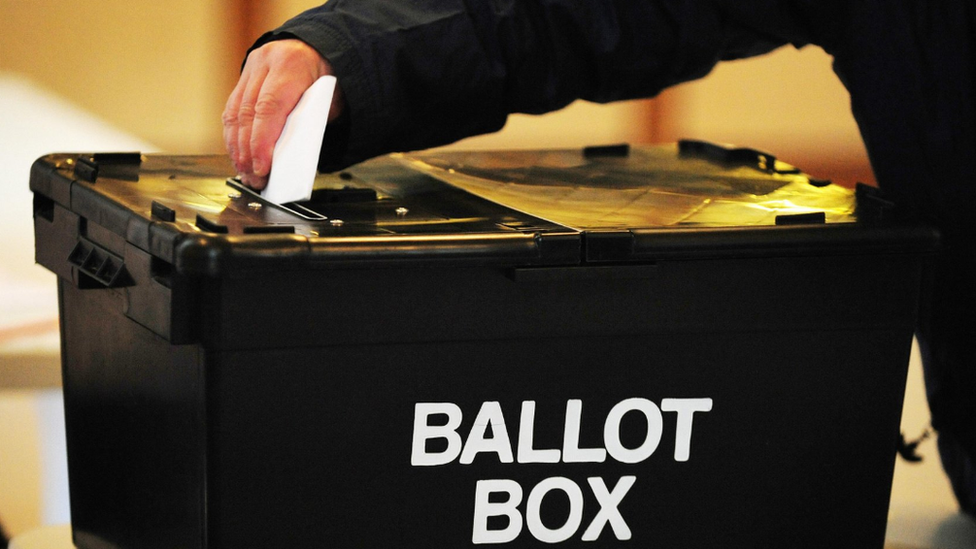
Polls will open at 07:00 on 2 May
The result is expected to be announced on 3 May.
It is a first-past-the-post system, so just like electing your MP, you will only get one vote and the candidate with the highest vote will win.

Follow BBC East Midlands on Facebook, external, on X, external, or on Instagram, external. Send your story ideas to eastmidsnews@bbc.co.uk, external or via WhatsApp, external on 0808 100 2210.
Related topics
- Published2 May 2024
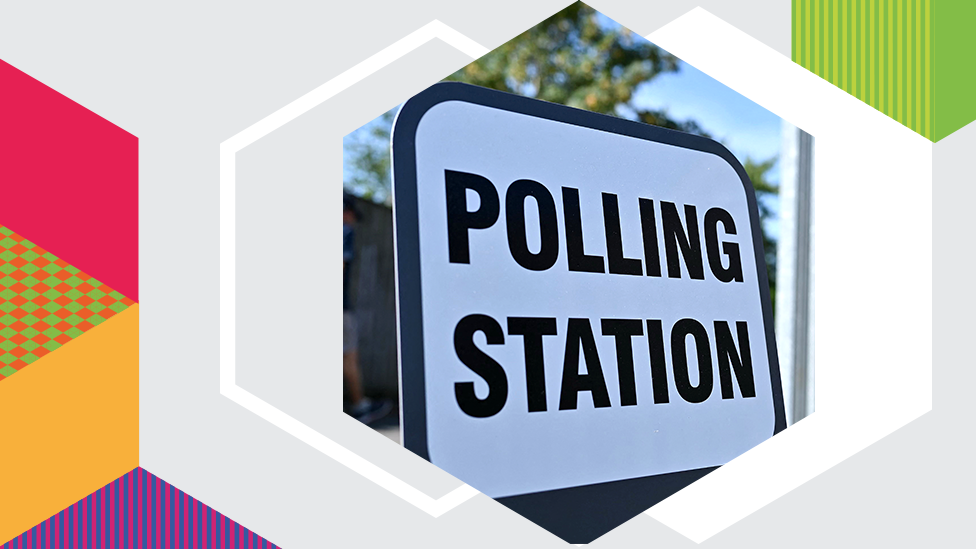
- Published29 April
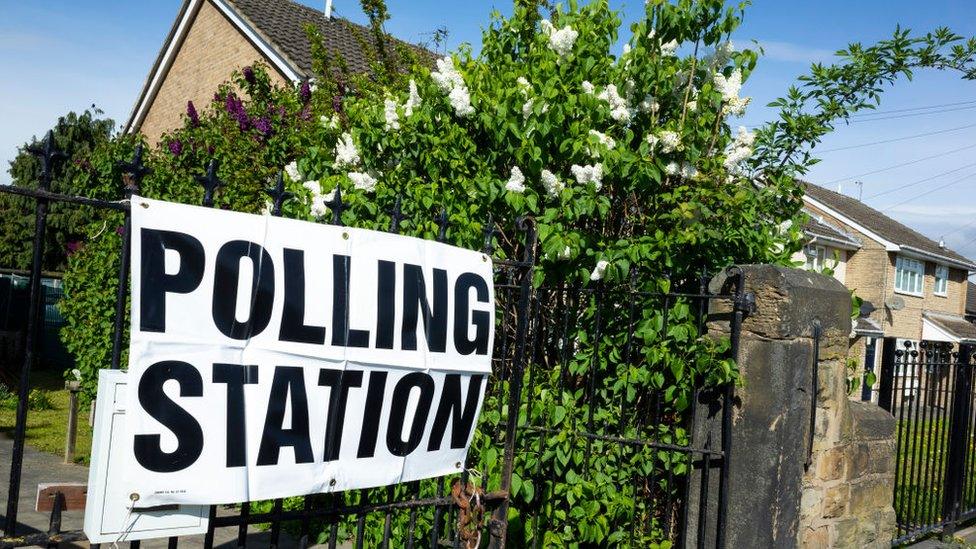
- Published29 April
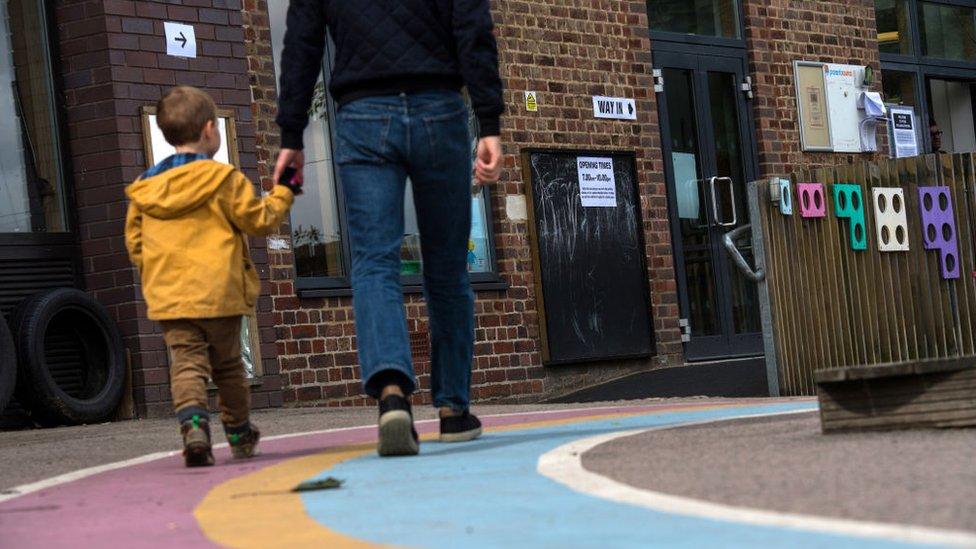
- Published27 February 2024
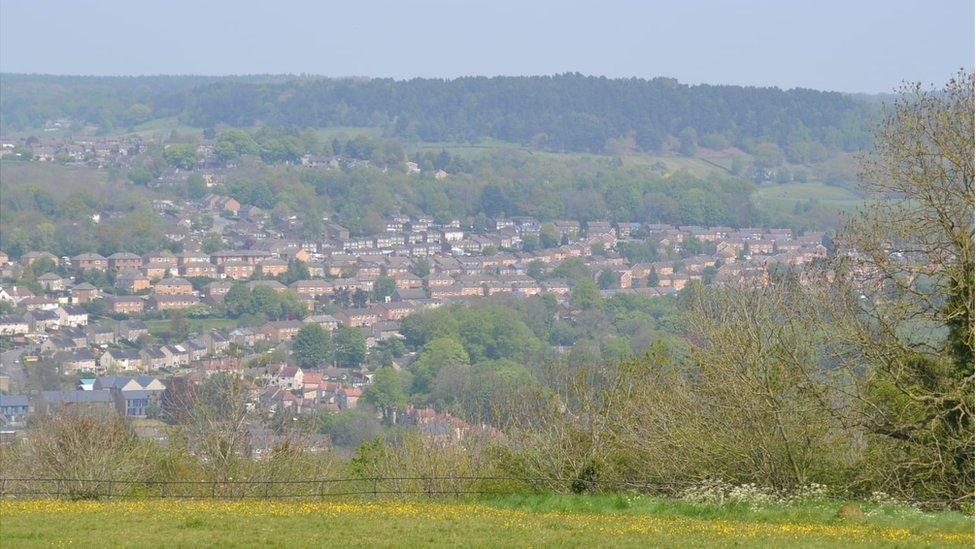
- Published8 December 2023
